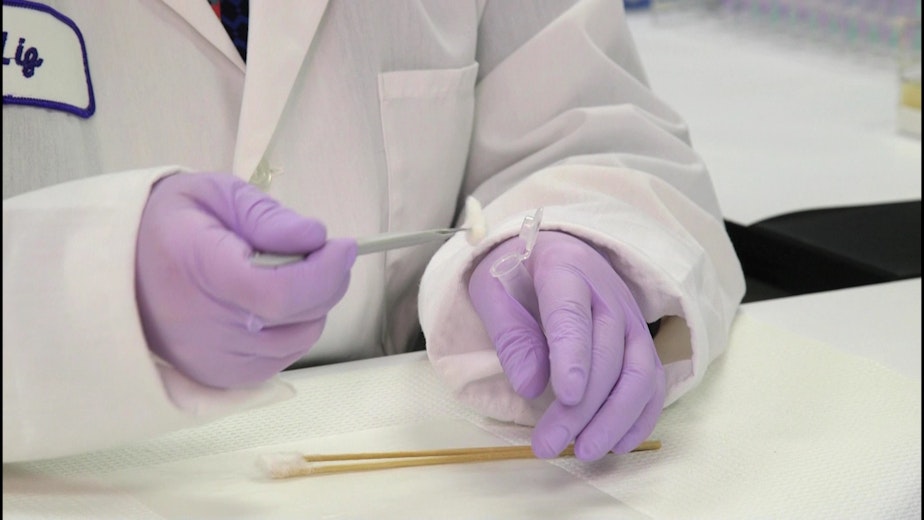What would it take to eliminate Washington's rape kit backlog?

$3 million for a nice new lab would be a start.
A new online tracking system for rape kits is up and running this week. Survivors of a sexual assault will be able to track whether a lab has tested their evidence for DNA.
But the system won’t get those kits tested any faster. Some have already languished on shelves for years.
For that, the crime labs are asking Governor Jay Inslee to add around $3 million to next year’s budgets for lab upgrades. The funding would be in addition to over $2 million in federal funding.
“What we’re hoping is we can process the kits about twice as fast as we can now,” Washington State Patrol forensic laboratory director Larry Hebert said.
Rape survivors in Washington face long waits for their evidence to receive forensic testing: around four months on average for active investigations and up to about a year and a half or even two years for inactive investigations, Hebert said.
Sponsored
Instead, the state is looking to emulate Ohio’s so-called high throughput lab, where rape evidence is processed in under a month, by adding more scientists and equipment to its Vancouver, Wash. lab location.
“This laboratory down there would be specifically focused on sexual assault kits,” Hebert said.
It would still take two or three years to eliminate the backlog, if the upgrades are funded and operational by next July. Washington state has over 9,000 untested rape kits, including more than 700 from active investigations that are currently pending at the lab, and around 6,500 that are in local law enforcement custody and have never been submitted for testing.
“While we’ve got this backlog of kits that needs to be done, we’ve got new stuff coming in every day,” Hebert said.
A lab that could process a lot of cases efficiently will help eliminate the backlog without creating a new one, King County Sexual Assault Resource Center executive director Mary Ellen Stone said.
Sponsored
“If there are better ways of doing things and we’re seeing that in other states, then by all means we should try to do that,” Stone said.
Meanwhile, rape survivors can expect more transparency in the process by tracking their evidence through the new online system.
“This helps victims feel like, ‘Yes, I’m being heard. My evidence I submitted is actually being taken seriously,’” Stone said.
While it provides some peace of mind, it’s “one pretty small step” to help survivors, Stone said. Most of the time, DNA evidence is never collected from a sexual assault, she said.
So far around 500 rape kits have been added to the online tracking system, Hebert said. That does not yet include old, untested kits sitting on shelves at local police and sheriff's departments.
Sponsored
If you have experienced sexual assault and need support, or if you would like more information about sexual violence, call King County Sexual Assault Resource Center’s 24-hour Resource Line at 888-99-VOICE or visit www.kcsarc.org/gethelp.




